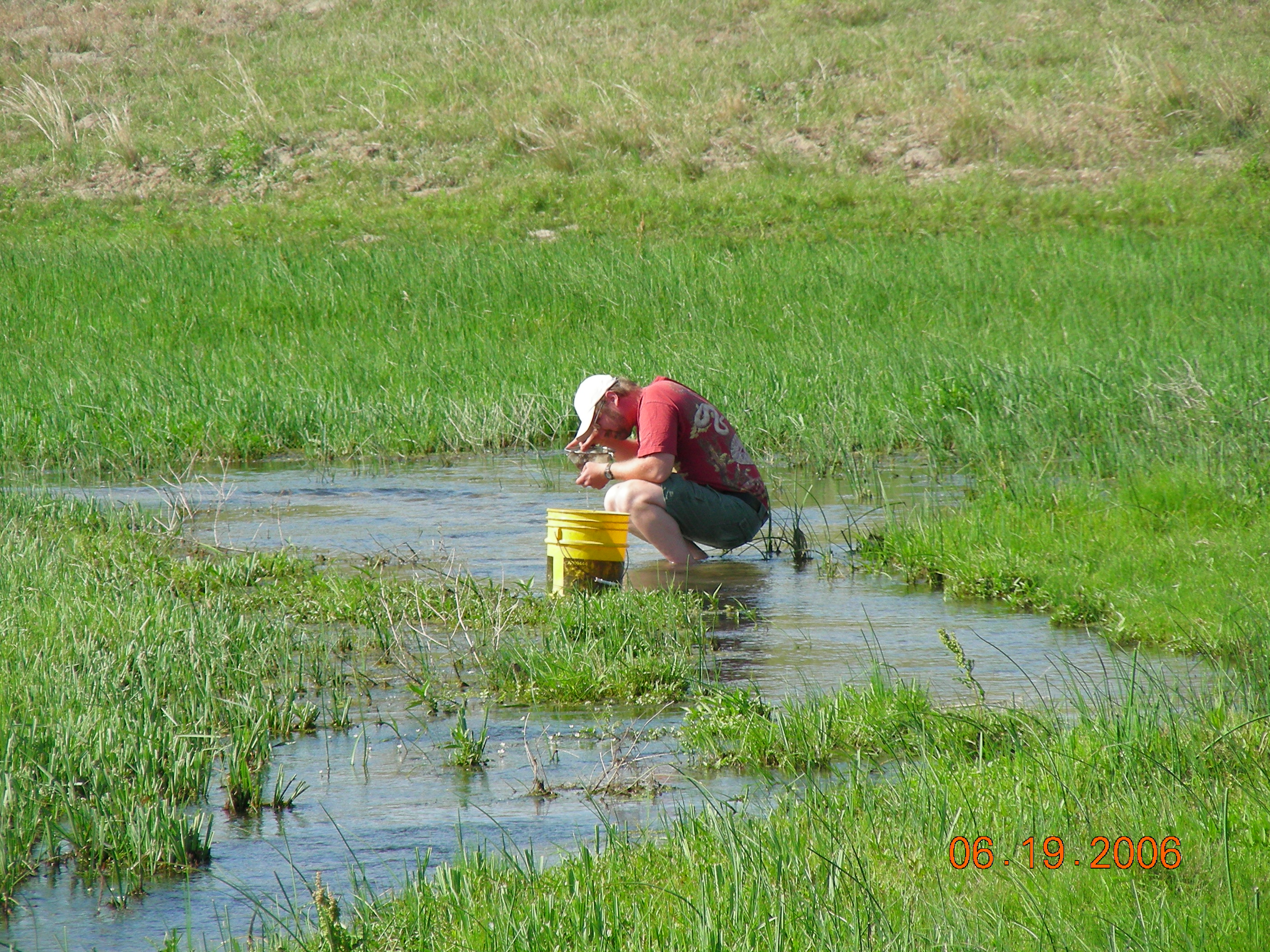

.....My overall research goals are to understand the processes that provide structure to parasite communities, and to identify what roles biotic and abiotic interactions play in parasite life-cycle evolution. In general, hosts represent well-defined and almost perfectly replicated habitats that harbor intrinsically hierarchical populations and communities of parasites. In order to address questions of parasite community structure and how abiotic environments and intermediate hosts serve as avenues for and constraints on the movement of parasites in the environment, I use amphibian hosts as a model system. Amphibians are good model organisms for these studies for a number of reasons. First, they spend a proportion of their life-cycle in aquatic ecosystems and the other portion of their life-cycle in terrestrial ecosystems. Second, among species, they vary in the proportion of time they spend in aquatic and terrestrial environments during their life cycle, and third, they have a diverse assemblage of parasites comprised of both phylogeneticaly related and unrelated groups as well as host specific and generalist species.
.....In order to understand the basic mechanisms structuring parasite communities we must have a solid understanding of parasite life-cycle evolution. My current work thus uses the comparative approach to life-cycle studies. This approach allows generation of hypotheses regarding mechanisms that drive evolution of complex parasite life cycles. I use groups of parasites that vary in their life-cycle complexity from one-host life-cycle parasites (coccidia, flies, and nematodes) to two and three-host life-cycle parasites (myxozoans and trematodes). I conduct field studies, laboratory experimental infections, and use molecular tools.
.....As a result, this work to date suggests that parasite life cycles vary depending on a particular life-cycle variant that is favored by regional aquatic environmental conditions and specific host combinations. As an example, I have identified two different and unrelated families of frog trematodes that truncate their life cycles or add additional intermediate hosts in order to complete their life-cycle in different geographical regions of the United States. The trematode species that I am investigating vary from being specialists to generalists at the second intermediate host level and exhibit both ecological and physiological host specificity at the definitive host level. These factors influence probabilities of transmission at one or more stages during their complex life cycle. This approach has provided me with the opportunity to identify regional variation in parasite life-cycle strategies based on the availability and predictability of aquatic habitats in a regional environment. These studies further show that abiotic factors and the availability of different host combinations play a strong selective force in the evolution of complex parasite life cycles.
....I also have an interest in the ecology, taxonomy and natural history of nematomorphs.